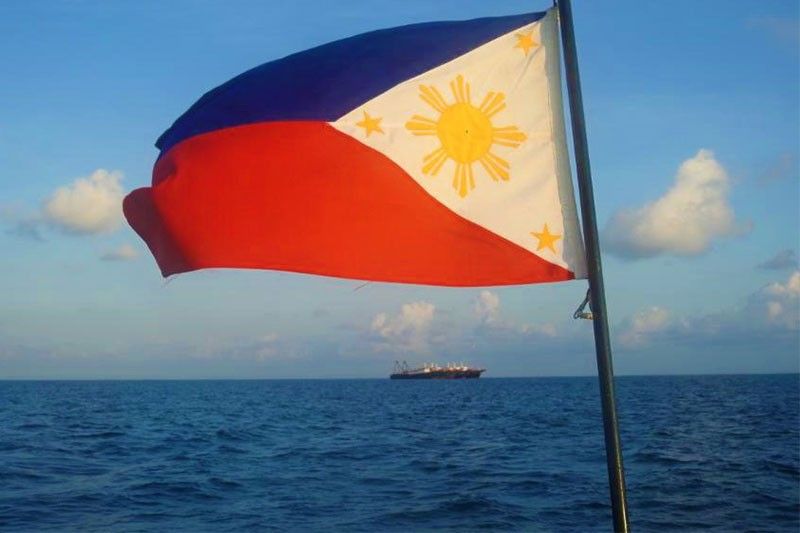Commentary: Re-evaluating our stance, alliances vis-a-vis the West Philippine Sea

Last month, over 200 vessels of the Chinese Maritime Militia—China's unofficial navy—were spotted in the area of Julian Felipe Reef, just 175 nautical miles off the coast of Palawan and well within the Philippines' Exclusive Economic Zone (EEZ). It is the latest of China's moves that sets aside the United Nations Convention on the Law of the Sea (UNCLOS) — to which it is a signatory —as it seeks to wrest control over even more of the South China Sea.
In his remarks during a recent virtual discussion organized by our Institute, Prof. Dindo Manhit, president of Stratbase ADRi, said that the "persistent and deliberate swarming maneuverings of their maritime militia vessels in Philippine waters reveals China's expansionist ambitions and renders false their pronouncements to safeguard peace and stability in the region. They continue to instigate deceptive rhetoric and acts that undermine the precepts of peaceful resolution and stability in the region".
During the discussion, retired Senior Associate Justice Antonio Carpio, for his part, said that "China has adopted the concept of 'might is right' in the South China Sea, in violation not only of UNCLOS, but also the UN charter."
If China is allowed to continue, Carpio also expressed concern that this could lead not only to the demise of UNCLOS and the end of a rules-based maritime order, but the beginning of a "maritime order created and enforced by naval guns and the entrenchment of the 'might is right' concept."
Over the past weeks, the Philippine government has continued to lodge diplomatic protests against the continued presence of these Chinese ships within the Philippine EEZ. Foreign Secretary Teodoro Locsin Jr. has even said that his department would file a protest "every day" so long as these Chinese vessels remained with our waters.
Defense Secretary Delfin Lorenzana has also strongly condemned the maritime incursion. He said in a statement, "The continued presence of Chinese maritime militias in the area reveals their intent to further occupy (areas) in the West Philippine Sea."
"They have done this (occupy disputed areas) before at Panatag Shoal or Bajo de Masinloc and at Panganiban Reef, brazenly violating Philippine sovereignty and sovereign rights under international law," Lorenzana further warned.
The strong positions taken by Locsin and Lorenzana on China's latest actions in the West Philippine Sea seem to have inspired others to speak up as well.
In a statement signed by educators and academics from the country's top universities, a group called the "Professors for Peace" expressed support for Lorenzana in demanding that the Chinese vessels leave our territory immediately. "We cannot tolerate the outright theft of our natural resources and the harassment of our fishermen," the statement read
The country's largest business groups, including Makati Business Club (MBC), Management Association of the Philippines (MAP), and Philippine Chamber of Commerce and Industry (PCCI), also recently released a joint statement joining the government's call for China to withdraw its vessels from the Julian Felipe Reef, to respect the Philippines' sovereign rights, and seek peaceful co-existence.
The international community has also expressed support to the Philippines. The Japanese Ambassador to the Philippines, Ambassador Kazuhiko Koshikawa, and Australian Ambassador to the Philippines, Ambassador Steven Robinson, have both spoken up against China's destabilizing actions and viewed these issues as directly impacting regional security and stability.
US Secretary of State Antony Blinken has also echoed the same sentiments, tweeting, “The United States stands with our ally, the Philippines, in the face of the PRC's (People's Republic of China) maritime militia amassing at Whitsun Reef (Julian Felipe Reef)."
The support for the Philippines government's strong public statements and formal diplomatic protest is both a reflection of Filipinos' desire for their sovereign rights to be defended and of the growing global concern over China's aggressive expansionism in the Indo-Pacific region.
However, the Philippines' response to China's incursion cannot be limited to statements and protests alone. According to Dr. Chester Cabalza, one of the speakers at the Institute's virtual discussion, "more than changing our strategy, we should also inform China that it has to change its behavior; otherwise, this current treatment will not change."
According to Dr. Renato de Castro, a trustee and program convenor at Stratbase ADR Institute, "the Philippines must develop a credible defense capability by focusing its limited resources on building the navy and the air force. It should strengthen its strategic alliance with the U.S. and enhance its security partnership with Japan, Australia, South Korea, Indonesia, Vietnam, the QUAD, and even Taiwan."
The QUAD, or the Quadrilateral Alliance, to which De Castro is referring, comprises the four naval powers — the United States, India, Japan and Australia. A loose-knit network of like-minded partners, their most recent leader-level meeting focused on leveraging their partnership to foster the "free, open, accessible, diverse, and thriving Indo-Pacific we all seek."
Indeed, in order for the Philippines to effectively counter China's “might is right” maritime aggression, the country must now leverage the international communities' support to forge stronger ties with regional partners and allies, such as the QUAD, to maintain regional peace and stability through joint efforts of maritime patrol and military exercises.
At the same time, the Philippine government itself must continue to listen and respond to the Filipino people's clamor for their government to defend their sovereign rights.
Given the unabashed incursion and continued presence of these Chinese vessels within the Philippines' EEZ, the Duterte administration must re-pivot its stance to ensure its foreign policy gives paramount consideration to our national sovereignty, territorial integrity, national interest, and the right to self-determination as mandated by our Constitution.
Paco Pangalangan is the executive director of think tank Stratbase ADR Institute.
- Latest


























